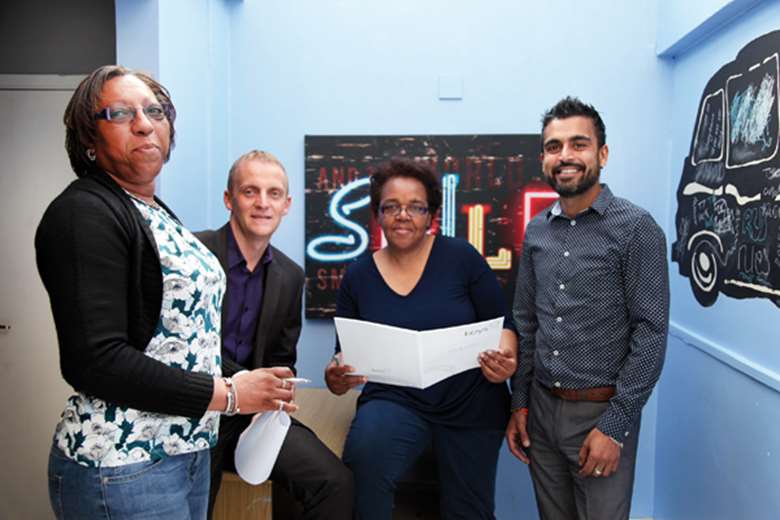Cross-Regional Project
Emily Rogers
Tuesday, June 7, 2016
Seven-year contract between residential child care provider Keys Group and six neighbouring authorities to provide therapeutic residential care and education for 11- to 18-year-olds with complex emotional and behavioural difficulties

- Keys provides the six Thames Valley authorities with 20 places in six small children's homes, all within an hour's drive of Unity College, a school set up to serve the homes
- Home and school staff are trained in the Secure Base therapeutic approach, attuning themselves to young people's needs through an understanding of their early experiences
ACTION
The Cross-Regional Project resulted from discussions in 2007 between Oxfordshire and Buckinghamshire children's service staff, concerned about the lack of local residential child care provision. "We were sending children all over the country to services that didn't appear to have good outcomes," recalls Buckinghamshire head of service for children's care Simon Brown, who was Oxfordshire's placements manager at the time. "They lost communication with friends and family, schools, doctors and CAMHS [Child and Adolescent Mental Health Service] workers. All we were doing was containing children, not helping them move forward. So it made sense to do something together about this."
The two authorities started meeting with colleagues in Hertfordshire, Bracknell Forest, Reading and Milton Keynes to discuss solutions, drawing up a specification for a local, all-inclusive therapeutic residential care service with education, which they invited bids for in 2009. The 21 applications were whittled down to five, among them Keys. What clinched it for Keys was its specialist education expertise.
Under the £15m five-year contract, subsequently extended by two years, Keys provides 20 beds in six two-to-four-bed homes: two near Aylesbury, one near Hemel Hempstead, two in Maidenhead and one in St Albans. Keys bought or leased all six homes for the project, opening the first two, along with Unity College, at the contract start in January 2011, then the rest one by one over nine months.
Each authority is allocated a number of the 20 beds and partner authorities can sell beds to each other where needed, ensuring maximum occupancy. All beds are currently occupied, but Brown describes the last place as "the most difficult to fill, because that child has to match well with the other children in that home".
The project is administered in Buckinghamshire by a jointly funded part-time manager, who receives referrals and liaises with Keys' referral manager. Referrals are then passed to contract director Emma Beech or manager Matthew Mills, who are helped by the managers of the homes with vacancies to assess referrals' suitability.
Each young person has an assessment by one of the homes' two therapists within six weeks of arrival, covering behaviour, emotional wellbeing, relationships, risk and indicators of psychological disorders. This provides the basis for a psychologically informed care planning and intervention plan. At an initial meeting, the therapist, young person's social worker, home and school staff and the project's psychologist identify three risky behaviours to tackle, through tailored strategies and interventions. The plan is reviewed quarterly.
Each home has a manager and staff team of eight or nine, providing each young person with a key worker and co-worker. Staff receive training in the Secure Base approach, which Beech says provides a "really nurturing experience for young people in line with their developmental age", through an individualised approach to daily routines such as settling them at bedtime and waking them for school. Staff act like devoted parents: preparing the young person for their absence and sending a postcard when on holiday and always knowing where they are, who they are with and how they can be contacted.
The 24-place Unity College in High Wycombe offers core subjects in the morning and vocational learning after lunch, delivered by six teachers and six education support workers. School and home staff work flexibly together: the head teacher attends home managers' meetings and teachers and residential staff share Secure Base training.
Home staff may help support a young person at school and a teenager struggling with core subjects in a group has one-to-one lessons from a teacher at home.
The homes' two therapists provide monthly consultation and drop-in sessions for home staff, and one day a week of pupil support at Unity College. A psychiatrist visits homes every two months, helping staff develop expertise in young people's behaviour and emotional wellbeing; and a clinical psychologist specialising in development issues and early trauma offers a day's consultancy each month.
Partnership members keep in regular contact through monthly commissioning, referral and contract management meetings. The six authorities are now in discussion with neighbouring authorities over a commissioning strategy for the next 10 years.
IMPACT
Of the 28 young people placed in the 12 months to March this year, 64 per cent had a history of significant missing episodes, the same proportion had a history of violence or antisocial behaviour, 54 per cent had an offending history and 29 per cent had seriously self-harmed. All reduced or stopped these incidents after moving in.
Residents stay for an average of 20 months, and of the nine who left between March last year and this year, five went into semi-independent housing, one into foster care, two returned home and one moved away. All 21 residents between January and March this year were in education or employment, except for one 16-year-old moving to a semi-independent placement and seeking work in his home area, and another leaving college to live with family.
Brown says the homes' localities have enabled young people to maintain a support network of family, social workers and CAMHS workers, adding that the project has stimulated the local care market, enabling authorities to place more children closer to home.
This practice example is part of CYP Now's special report on residential care. Click here for more




